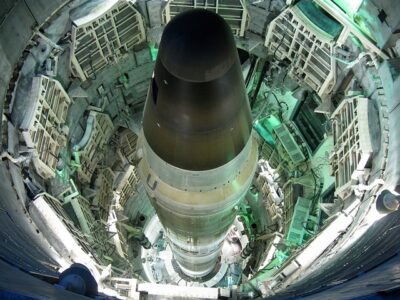 Most people agree that a full-scale nuclear war is unwinnable. It is probably impossible to shoot down every nuclear-armed missile aimed at your country. And the more nuclear weapons the enemy has at its disposal, the more fateful the outcome.
Most people agree that a full-scale nuclear war is unwinnable. It is probably impossible to shoot down every nuclear-armed missile aimed at your country. And the more nuclear weapons the enemy has at its disposal, the more fateful the outcome.
The nuclear arsenal is designed to withstand a first strike with sufficient capacity to effectively destroy the other country in a second strike. A first strike would therefore mean suicide for the country that initiates the conflict and launches the nuclear weapons.
Apart from this overarching truth, there are a number of strategic considerations. To be absolutely sure that a nuclear-armed missile is not shot down, you want to place it as close to the target as possible. As the Russians tried to do in Cuba in the 1960s (just a few miles from Florida) or the current tactics the US and NATO are trying in Ukraine. You can also use nuclear submarines that lay close to the other side’s coast, but this is of course more complicated and costly.
Is there then no way to shoot down these nearby nuclear weapons?
As I understand it, once the war is underway, military countermeasures will be very difficult. However, it is possible to strike in advance against the bases, where the nuclear weapons are stationed, in a pre-emptive strike. This requires the pre-emptive party to start the war, and it grants the other party a moral advantage.
Another option is to also place nuclear weapons on the opponent’s border, creating a kind of balance of terror, where both parties have nuclear weapons stationed near their respective countries. This could lead to a diplomatic solution where countries finally agree to remove their weapons from each other’s borders.
The very idea of stationing nuclear weapons close to the intended enemy’s border cannot really avert a second wave of nuclear war, the doctrine still applies. Rather, the proximity strategy should be seen as a challenge, aimed at winning some kind of point, either diplomatic or military, or provoking a reaction. It can also be part of a strategy of attrition, if the enemy is suspected of being economically or socially unstable, which in itself does not make it less dangerous.
There may also be a few military strategists who believe that a nuclear war can be won by striking quickly and mercilessly. The vast majority argue that the risk is too great and that other alternative paths are better, such as disarmament agreements, trade and fraternisation.







